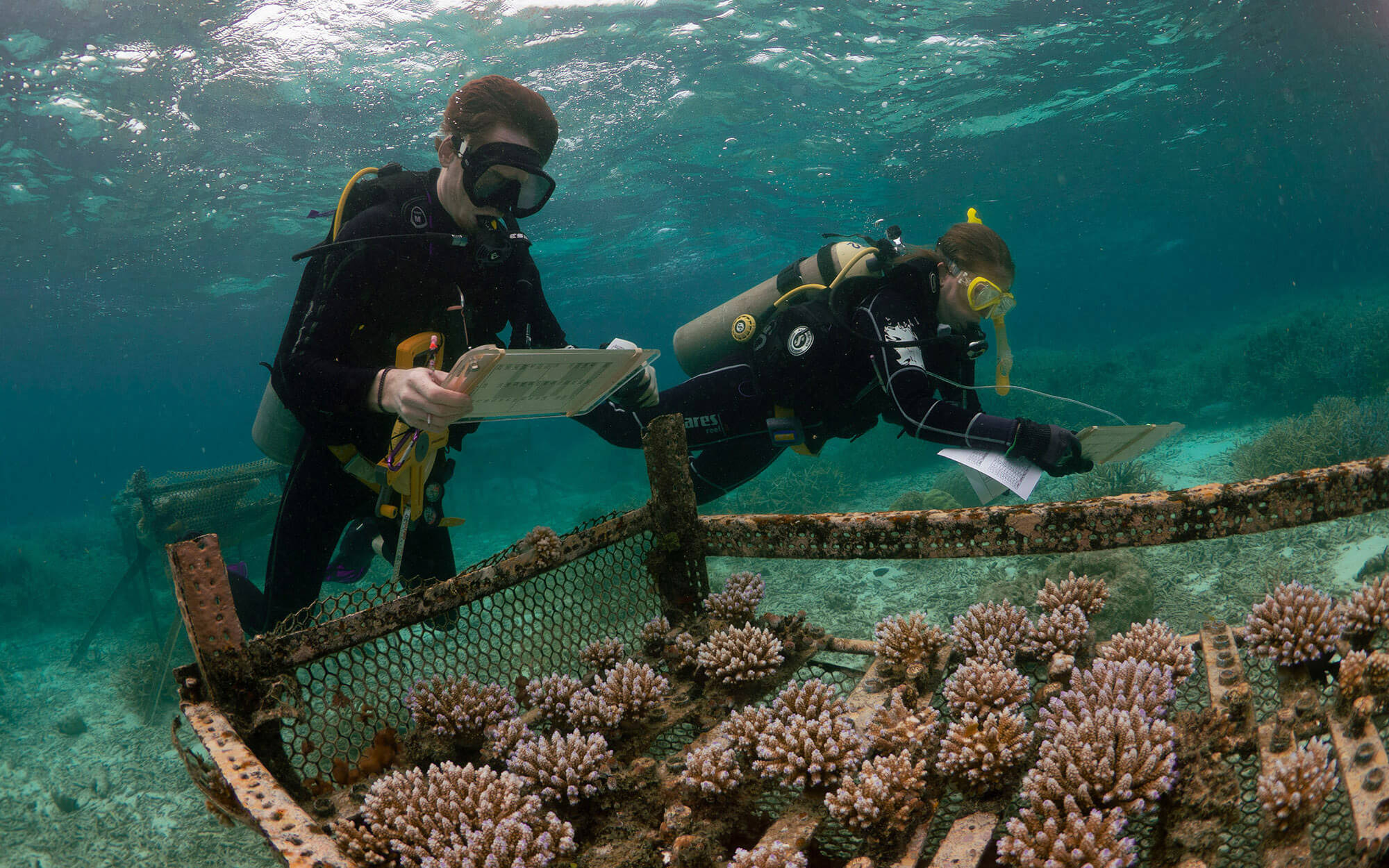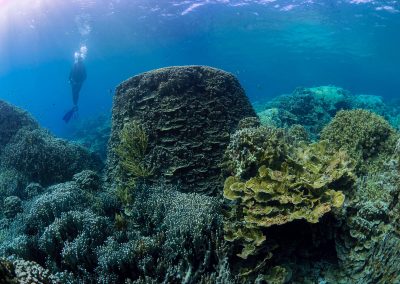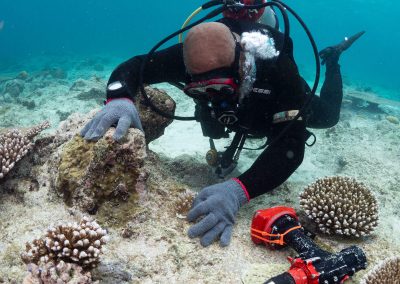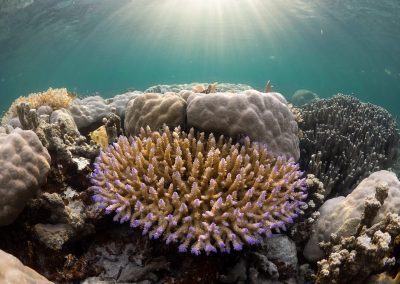Project title: Quantifying and operationalising genetic adaptation for successful coral restoration (CORALADAPT)
Project lead: Dr. James Guest
Co-applicants: Dr. Gerard Ricardo, Dr. Bozec Yves-Marie, Prof. John Bythell, Prof. Pete Mumby, Dr. Maria-Vanessa Baria-Rodriguez, Dr. Victor Ticzon, Prof. Rachel Ravago Gotanco, Prof. Aletta Yñiguez, Dr. Yimnang Golbuu, David Idip, Dr. Adriana Humanes
Countries involved: Australia, United Kingdom, Philippines, Palau
Takes place: Philippines and Palau
Supporting institutions: University of Queensland, Newcastle University, University of the Philippines, Palau International Coral Reef Center, Palau Automated Land and Resource Information Systems
Total budget: USD $1,499,302.00
Duration: 36 months
Project overview
Tropical coral reefs are marine ecosystems critically under threat from human activities, particularly climate change. To be able to survive, corals need to adapt to the ever-changing environmental conditions, such as rising seawater temperatures. Because the ocean is warming faster than most species can actually adapt, there is an urgent need to boost corals’ potential to survive under the anticipated warmer ocean. This can be done by employing techniques that artificially assist corals’ evolution through selective breeding.
CORALADAPT seeks to quantify the genetic and environmental drivers of coral heat tolerance across reef systems in the Philippines and Palau. By knowing how much heat tolerance varies among corals and how genes and environment influence coral adaptation, the project expects to boost coral reefs’ resilience under the anticipated warmer ocean. Moreover, the team aims at advancing the understanding of how coral species adapt to rising temperatures, and provide tools and guidelines for maximizing restoration success by offering the first blueprint for building climate resilience in corals. The results will inform national restoration policies in the Philippines and Palau, and advance global coral conservation.
Specific objectives
- Reduce the uncertainty associated with coral adaptation potential for a diversity of reef environments/taxa by quantifying genetic variation and trait heritability of corals.
- Develop restoration strategies that leverage corals’ adaptive traits to climate change.
How the objectives will be met
- Estimation of genetic variation and trait heritability:
- Perform coral crosses to produce family lines.
- Measure a wide range of coral traits, including heat tolerance and growth rates.
- Estimate genetic variance and heritability of relevant phenotypic traits.
- Development of restoration strategies and tools:
- Determination of optimal restoration strategies with and without adaptation: strategies for restoration and assisted evolution will take into consideration variables such as local ecological context, patterns of larval connectivity, bleaching intensity, and variability & heritability of coral heat tolerance.
- Creation of decision-based model outcomes, which will be synthesized and made available online both for the scientific community and for a more diverse audience.
Impact of the project
This project will generate three outputs for practitioners that will aid decision-making in coral restoration efforts:
- Interactive model for restoration outcomes, which guides users on how to maximize restoration benefits over ecological time scales.
- Interactive model for restoration design, which guides users on how to prioritize restoration in space.
- Principles of restoration with adaptation: synthesis of outcomes and design principles as well as guidance on how restoration and other management activities can be combined effectively.
Major highlights
- First large-scale quantification of genetic adaptation of heat-tolerant corals across contrasting reef environments.
- Development of actionable restoration tools tailored for practitioners and policymakers.
In 2024:
✅ Completed the first major fieldwork season in Palau and the Philippines.
✅ Conducted heat-stress experiments on corals.
To learn more about this project, watch the episode 1 of our web series.




